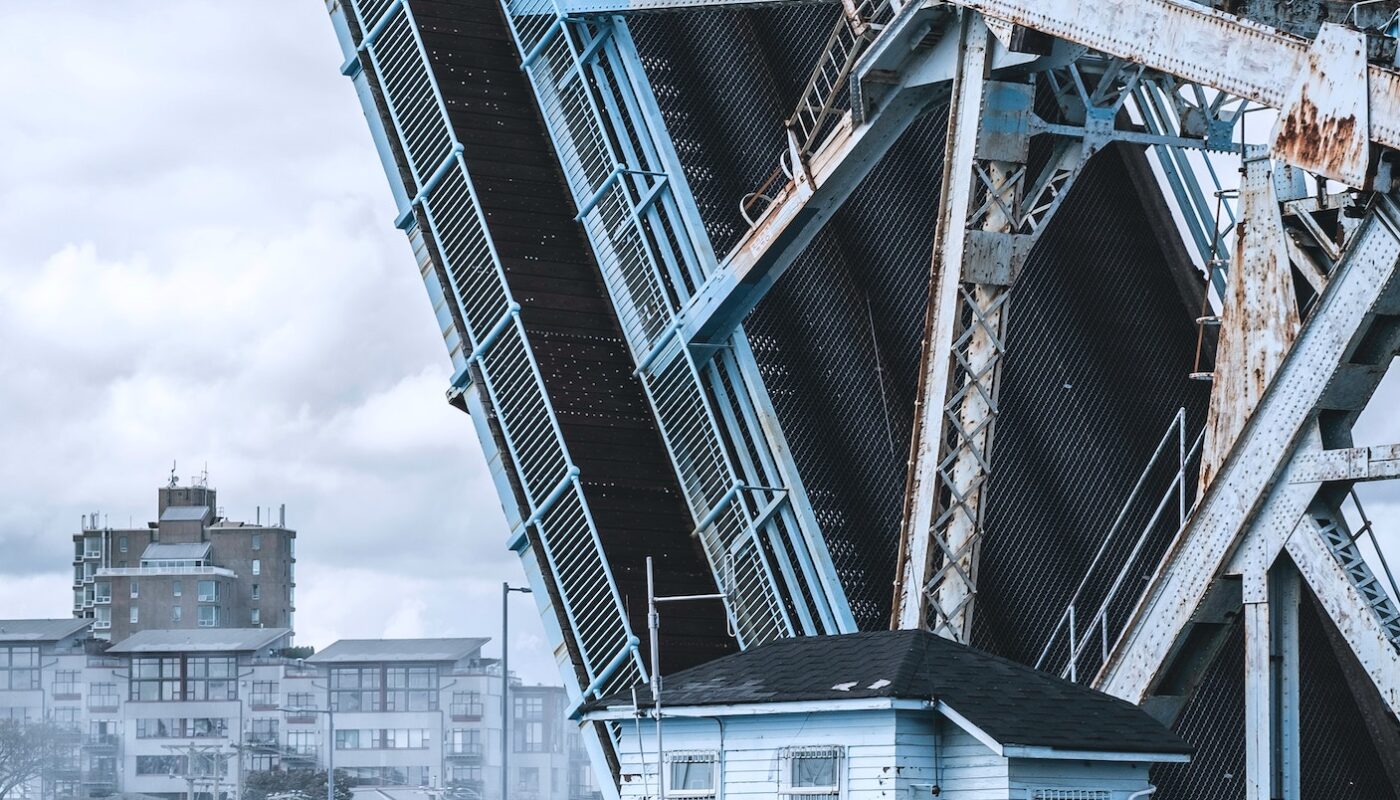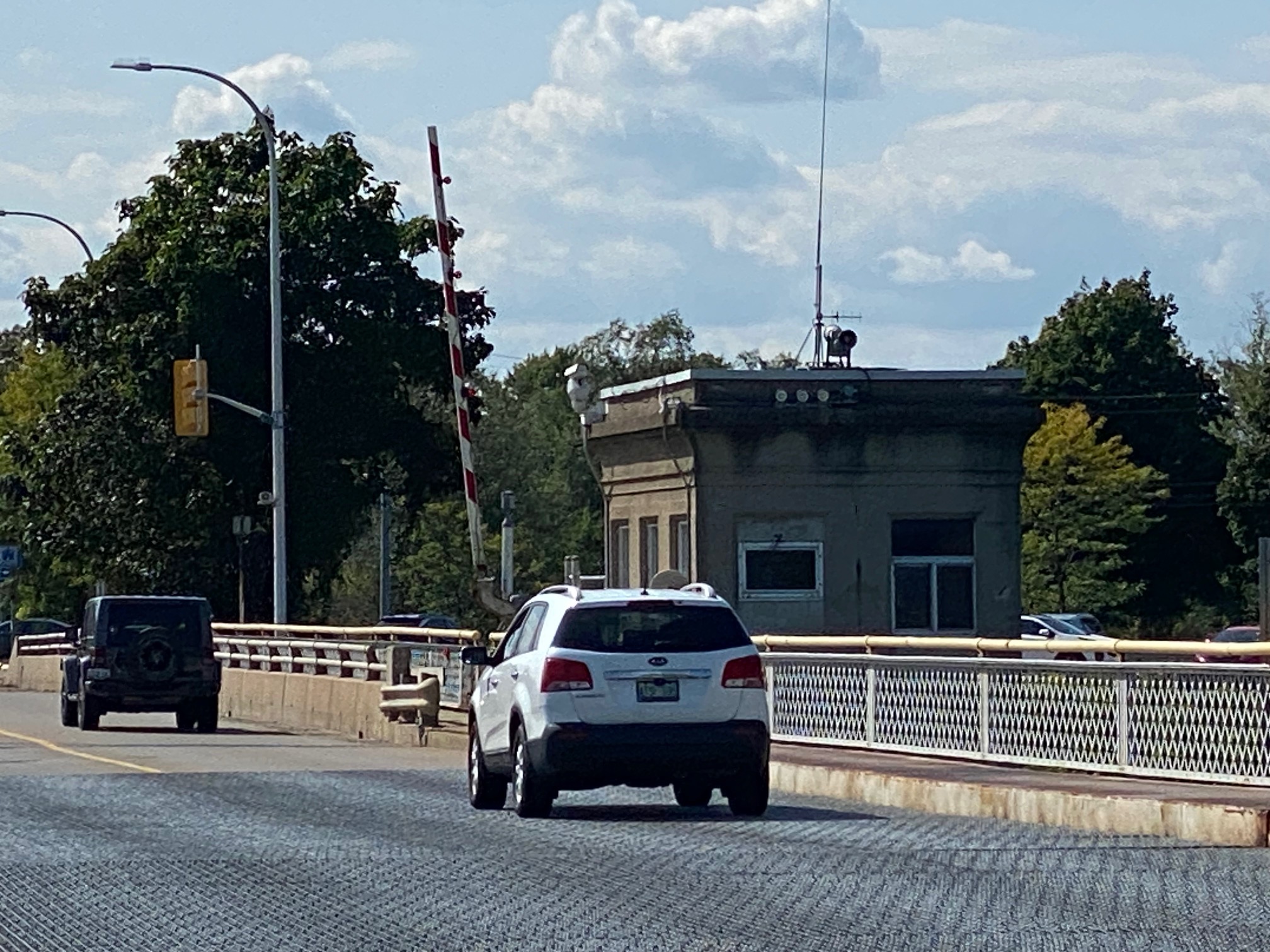
There was only one journey of importance in Ben’s life. He’d made car and train trips, but only one journey, repeated over and over, mattered. He took no photos of it. He had no dates written down about it, no postcards, had not even mentioned it in any letters.
Entering their house on a fine fall afternoon, he found Grace, his wife, lying down in the bedroom, as she did sometimes since her recent miscarriage. They’d tried to laugh it off, guessing that the baby must have been a boy and no boy wanted to come live in a houseful of girls. Ben was never sick, and if he caught a cold, he went to work as usual. There were no sick days on the farms he’d grown up on. You called the doctor if you were broken or dying, not if you needed a lie down. But the two recent miscarriages, January and September, and the two that came between Joan and Bobby, had created a deep ditch between him and his wife that ran with sorrow. And this last one really took it out of her.
Kate sat beside Grace, smaller than a child of eight, gasping for air.
Grace put down the book she’d been reading aloud as a distraction. “She’s been bad all day. She needs to go to the hospital.”
That was the journey that framed his days. The St. Catharines General Hospital, which he’d passed on his way home from work, was fifteen minutes away by car. He carried the child out to the car, put her in the front seat beside him. Gassed it up the hill of Martin Road, then turned right onto Queenston Road, two lanes that wound along the top of a ridge. Below the ridge were orchards, some vineyards, farms. The next ridge up was the Niagara Escarpment. He drove this same road to work, to his in-laws, to church, and to the doctor’s — he knew the road at all hours. The late afternoon slant of sun into the car. The tang of the tall Queen Anne’s lace and blue flowered chicory that grew in the gulley where the road curved and dipped, the same spot that in winter hid black ice. In a few years, someone would go off the road there, maybe a teenager coming home drunk from a date in St. Catharines, maybe a man coming off shift work, up all night and having no warning in the early morning light.
The car humped a rise in the road, and he glanced down at her. Not crying, that’s good. Just working on her breathing. Noticed her hair wasn’t done today, and she was still wearing her summer pedal pushers.
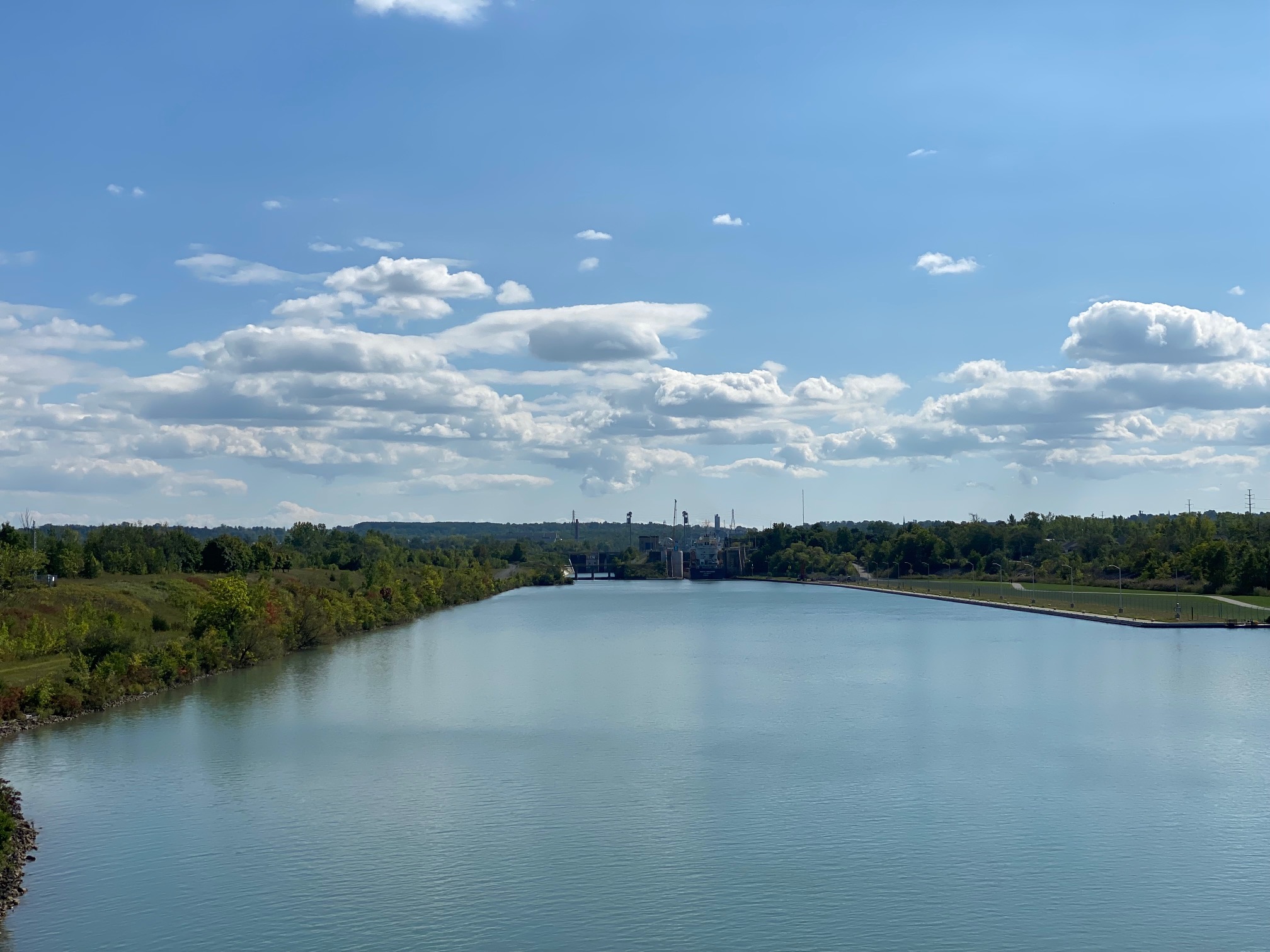
There is a hallucination to be seen from Queenston Road, after crossing Airport Road but before the new Anglican church on Coon Road. There’s a point where the driver can glance away from the road, down into the flat lands that extend all the way to Lake Ontario, a view of the fertile farms unobstructed by houses or trees, and see a ship, a laker or an ocean-going salty. A ship that has made its way up the St. Lawrence Seaway, destined with its goods maybe for Chicago or somewhere up the lakes. Actually in the canal, the ship would be just slightly below the surface of the land, and it would seem to float through fields.
He glanced away from the road to that spot, praying. If he saw a salty in the fields, then the question became: could he beat it to the bridge? He glanced again at the child in the front seat beside him, the child whose breathing sounded like someone forcing an old bellows, whose breathing sounded like a parent’s nightmare. He had to make sure she didn’t pass out. She was looking out the window, as if she too sought the ship mirage. She puffed her cheeks out as she exhaled. Then she thumped her back against the seat. Coughing bent her over double. From habit he said, “Spit it out,” and handed her his hankie.
Up the hill, past the white farmhouse, down the dip, around the bend. Look for the ship. No salty, no laker, floated on the land, but it didn’t mean there wasn’t one, only that he and the ship hadn’t met at the precise moment when his view was clear of houses or trees, when the ship was closer to or farther from the bridge. All the same, seeing none, he relaxed a little as he drove, listening to the easy hum of the tires until he reached the intersection where he would turn away from the Avondale Dairy ice cream parlour, taking a left onto the Stone Road for the Homer Bridge.
If the bridge was up, his daughter could die. She passed out last time, and he’d rushed her into Emergency, and they’d taken her away from him as if it was his fault that her body betrayed her, his fault that she couldn’t control her breathing. Like the vet when the dog was hit by a car, implying it was his fault she was hit because she should have been tied up, fenced in. Hadn’t dogs always run free? On the farm, yes, but not next to a busy road where, even he had to admit, cars went too fast. As he was doing at this very moment, driving too fast.
Her knees were drawn up to her chest, her elbows were resting on her knees, and she stared ahead and slightly upward. Where was she, in her head?
At the intersection, he turned left, and then he turned right. And there, to his dismay, he saw the bridge going up. He stopped behind the three cars ahead of him and gripped the steering wheel of his self-painted Pontiac. He watched the grilled section of road rise to the sky; he watched her watching. They were so close, only 5 or 10 minutes. He said, “Hang on.”
She lifted her hand and gripped the car door handle, not the open-close handle but the molded handle that helps to pull the door closed.
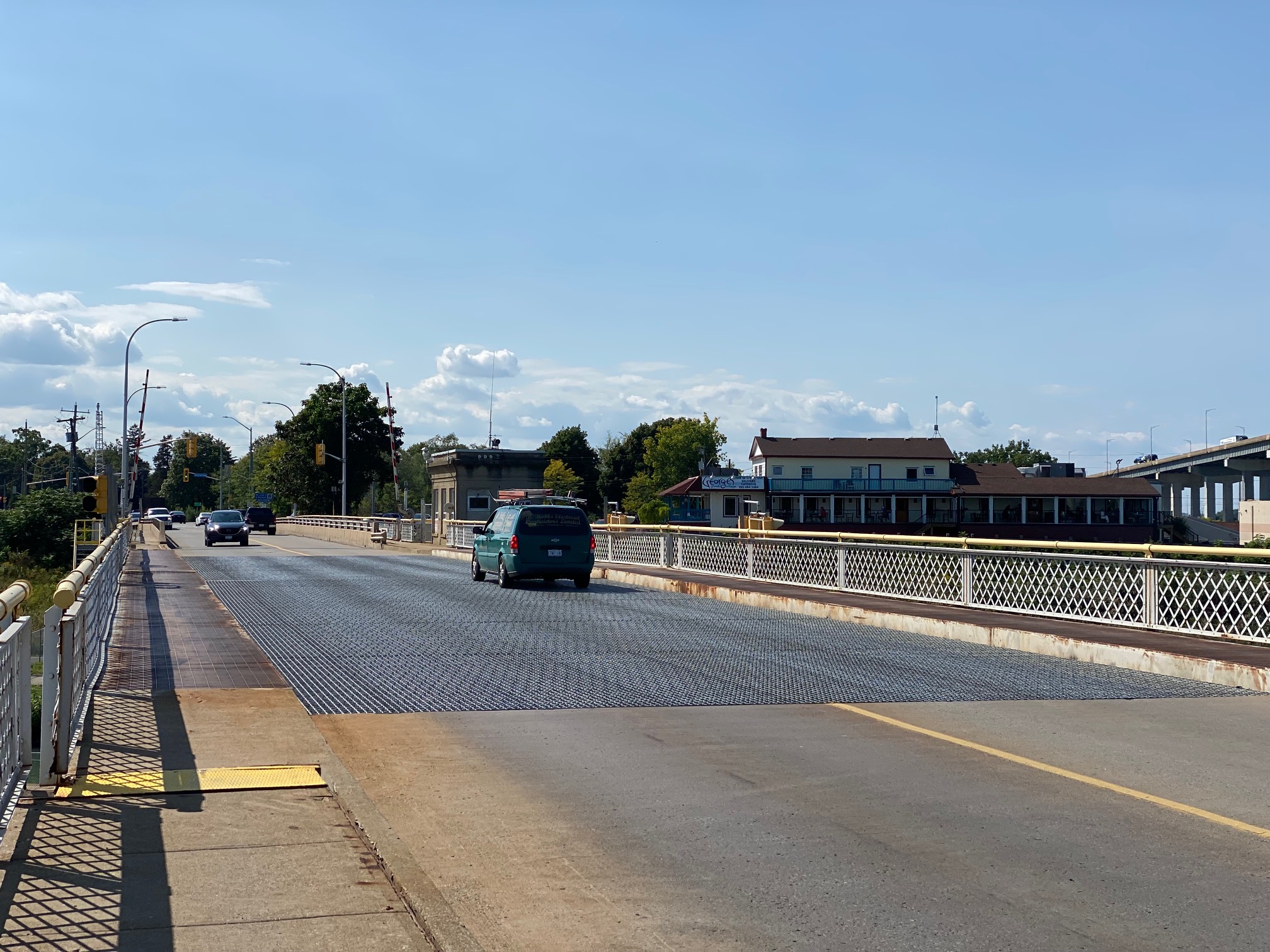
He opened the car door and got out. He used to love watching the ships come by, followed by the yachts. He’d bring Grace here, and they’d stand watching, guessing where they came from and where they were going. Now he stepped out with mounting anxiety – how many were in the locks? A salty, yes, with its white upper deck and its black lower. And a couple of sailboats. The fucking sailboats were the worst, futzing around as if they had all the time in the world.
He wanted to punch the man in the booth who made the bridge go up and down.
He wanted to punch the sailors.
But he was not a punching man. Slight himself, he preferred to defuse tense situations with words. Or with silence. With just a stare. Ignore them, his father used to say as they took the horse and carriage into town and the boys would shout after them, Krauts, Nazis. Because they weren’t German, they weren’t sent to the enemy alien camps. They were Mennonite farmers. His parents spoke Russian as much as Plattdeutsch. Suddenly he remembered why he was here, where they were going, and leaped back into the car to see how Kate was doing.
“You ok?”
She blinked but didn’t nod.
“We’ll be there soon. Hang on.”
Her hand squeezed the door handle.
Then he did something he would never do ordinarily. He went up the line of cars and asked each driver if he could go to the front of the line, his daughter was sick and he had to get to the hospital. So that when the bridge was down, when the bit of road known as the Homer lift bridge had settled back into its socket, its frame, its bed, he was the first to step on the gas. And step on it he did.
“Kate?”
No response.
The red brick building of the St. Catharines General Hospital was becoming as familiar to him as his own house. This was what, her tenth? attack since the one that nearly killed her, the one when they didn’t know what it was. Standing and looking at her and asking, Is it the flu, is it whooping cough, then calling the doctor, and waiting for him to call back, and obeying when he ordered them to drive her to the hospital immediately. They understood then, the young parents that they were, that this was serious, because if you were sick the doctor would make a house call, but if your life was in danger, he would tell you to go to the hospital.
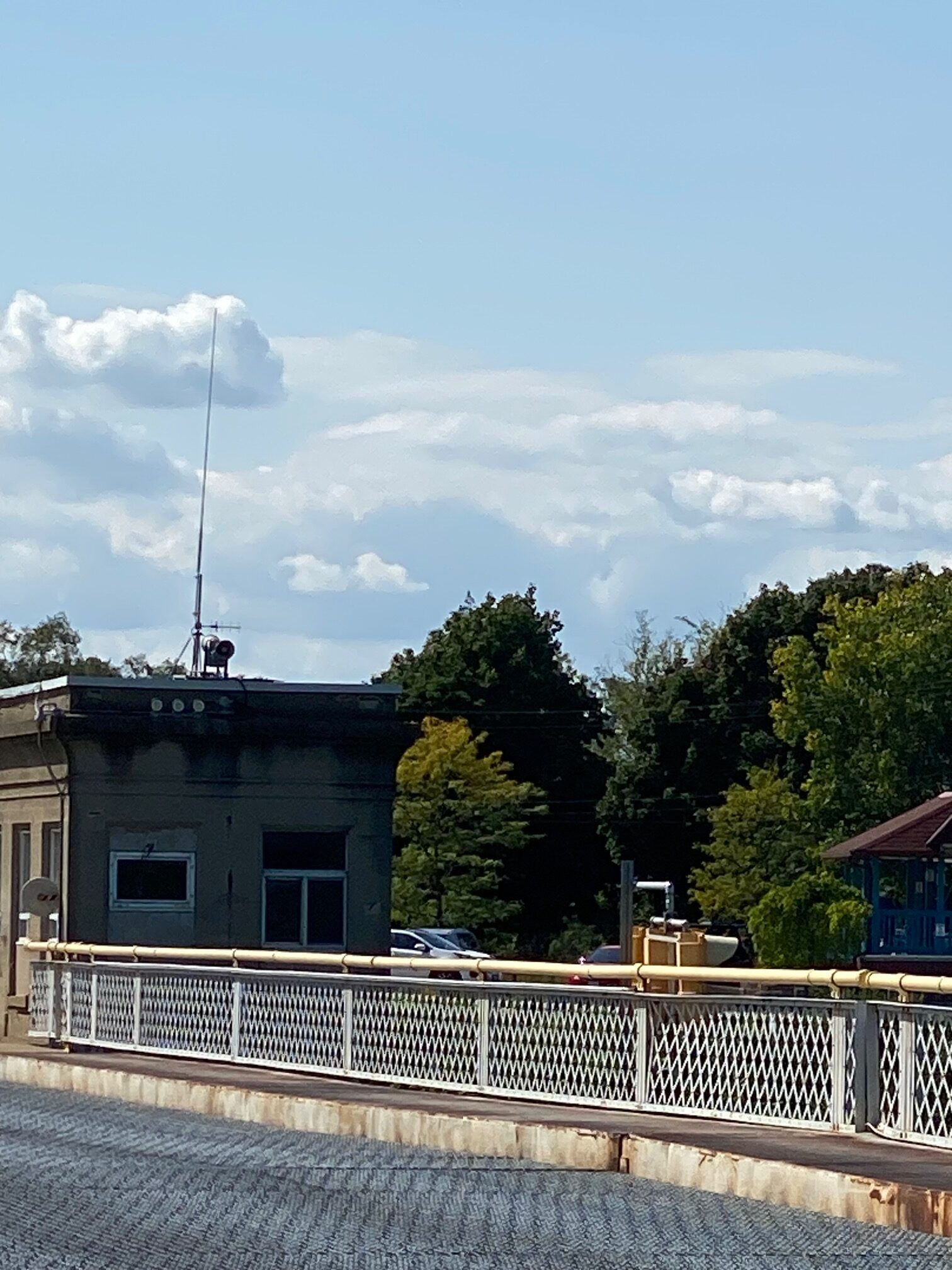
He stopped his car in front of the emergency doors. He lifted his unconscious daughter out of the seat and carried her limp body through the glass doors into the cool of the reception room.
Take her right in, take her down the hall to Room 3.
He did. He did as he was told. He didn’t cry or shout, nor pray. He carried his daughter in his arms until he could put her down, and when he put her down, there was a medical person putting an oxygen mask over her face, asking him questions. Then came the big injection. From previous bills, he knew it was adrenalin.
The young doctor said, “You got here just in time. She’s congested. We’ll keep her overnight, maybe more. We’ll take her up to the children’s ward. She needs a night or two on oxygen.”
He didn’t say he didn’t understand why her lungs were congested. He didn’t ask how was today different from the other days, nor what they meant by “just in time.” He nodded. They would do what was best.
Holding his daughter’s hand, he wondered about his wife, about the babies she’d lost, and how she couldn’t handle another loss. He thought about driving back on Queenston Road without his daughter in the front seat. He thought about driving to the hospital after supper so his wife could see her during visiting hours. How they would have to bring the other two kids, how he would have to amuse them, as they wouldn’t be allowed in most likely. Or maybe the neighbour would take them. He hated to ask for help. His wife could ask, she was friends with them. He thought about how he did not want to pray, even as he whispered to his daughter, “You can make it, you have to make it, keep breathing kid.”
He felt a little breathless himself, from his own adrenalin rush. Maybe he would stop off for a beer at the bar near the Homer Bridge, on his way home, as he did sometimes with men from work.
Photo by Tj Holowaychuk on Unsplash.
Debra Martens
Debra Martens left her Niagara home (between Queenston and St. Catharines) after high school and is still writing about that place. She has published short stories in The New Quarterly, Grain, Room, and most recently, The Quarantine Review. Her story collection, In Her Element, seeks a publisher. She also edits Canadian Writers Abroad. Find out more about Debra Martens and on Canadian Writers Abroad.
